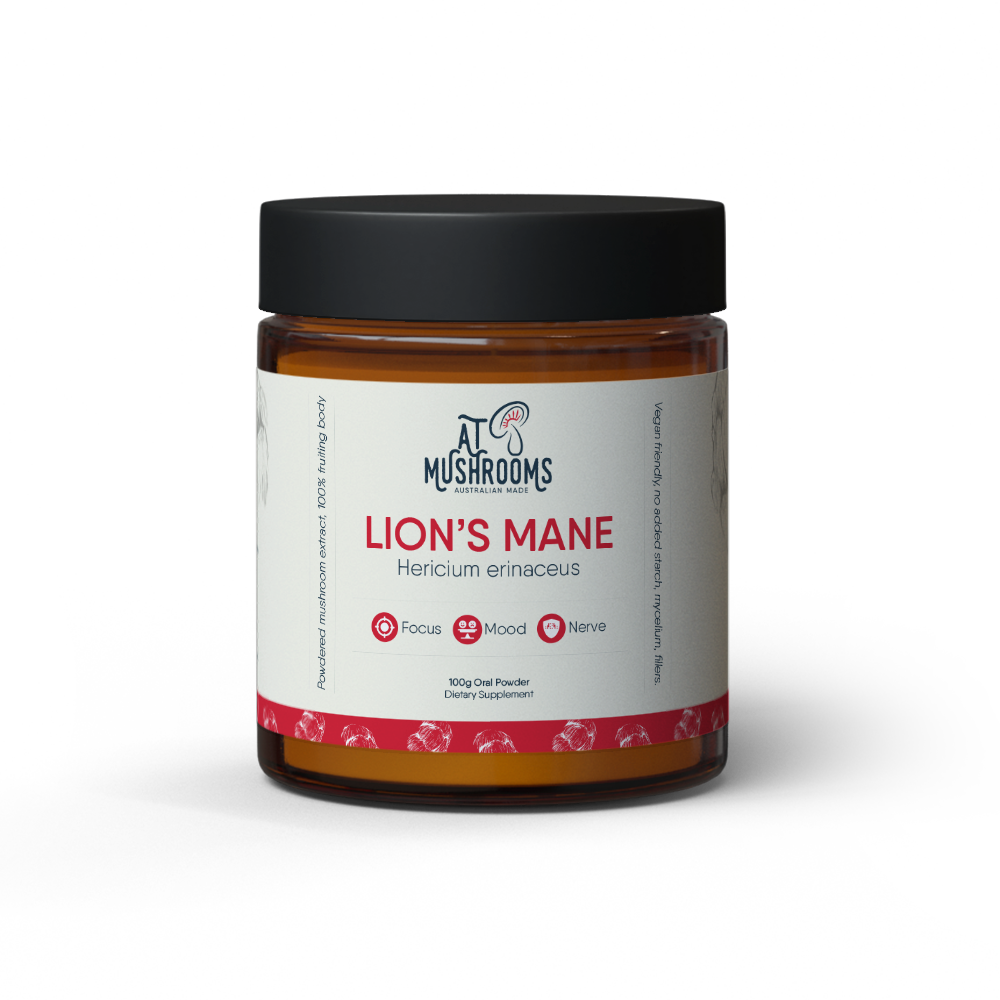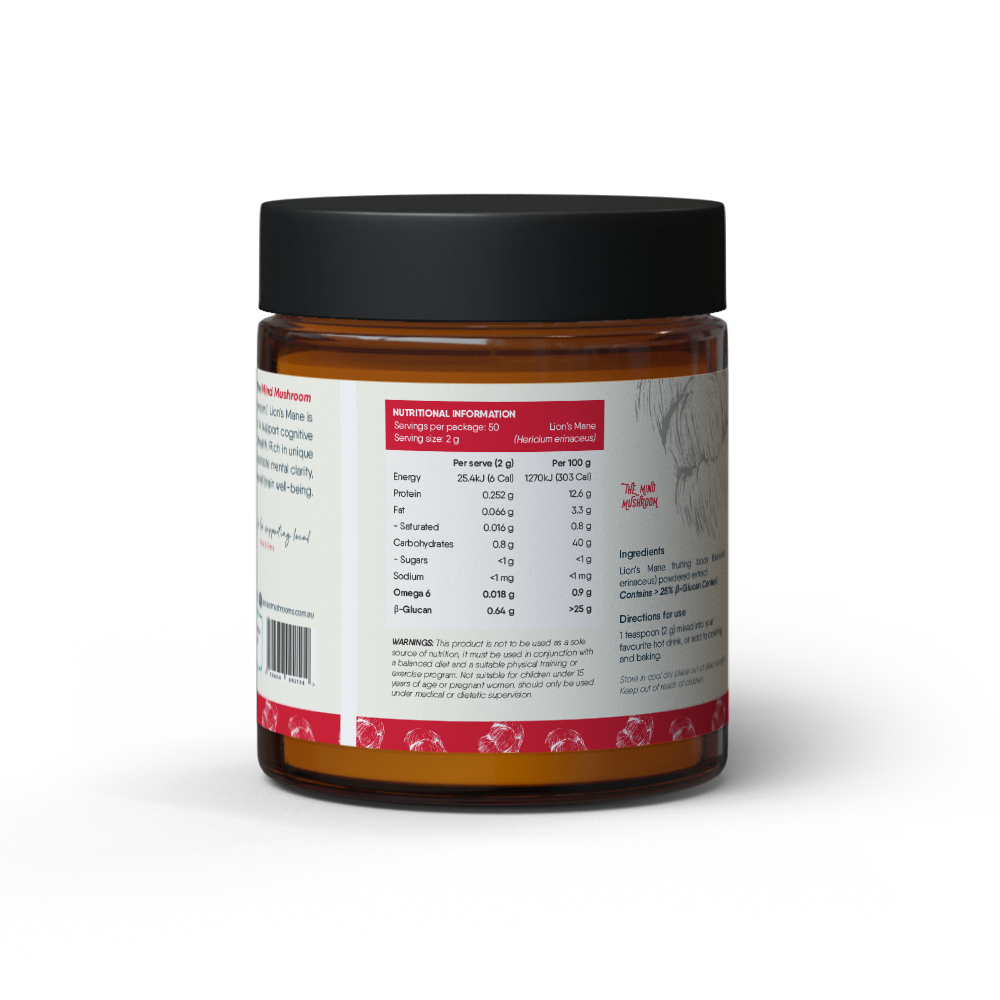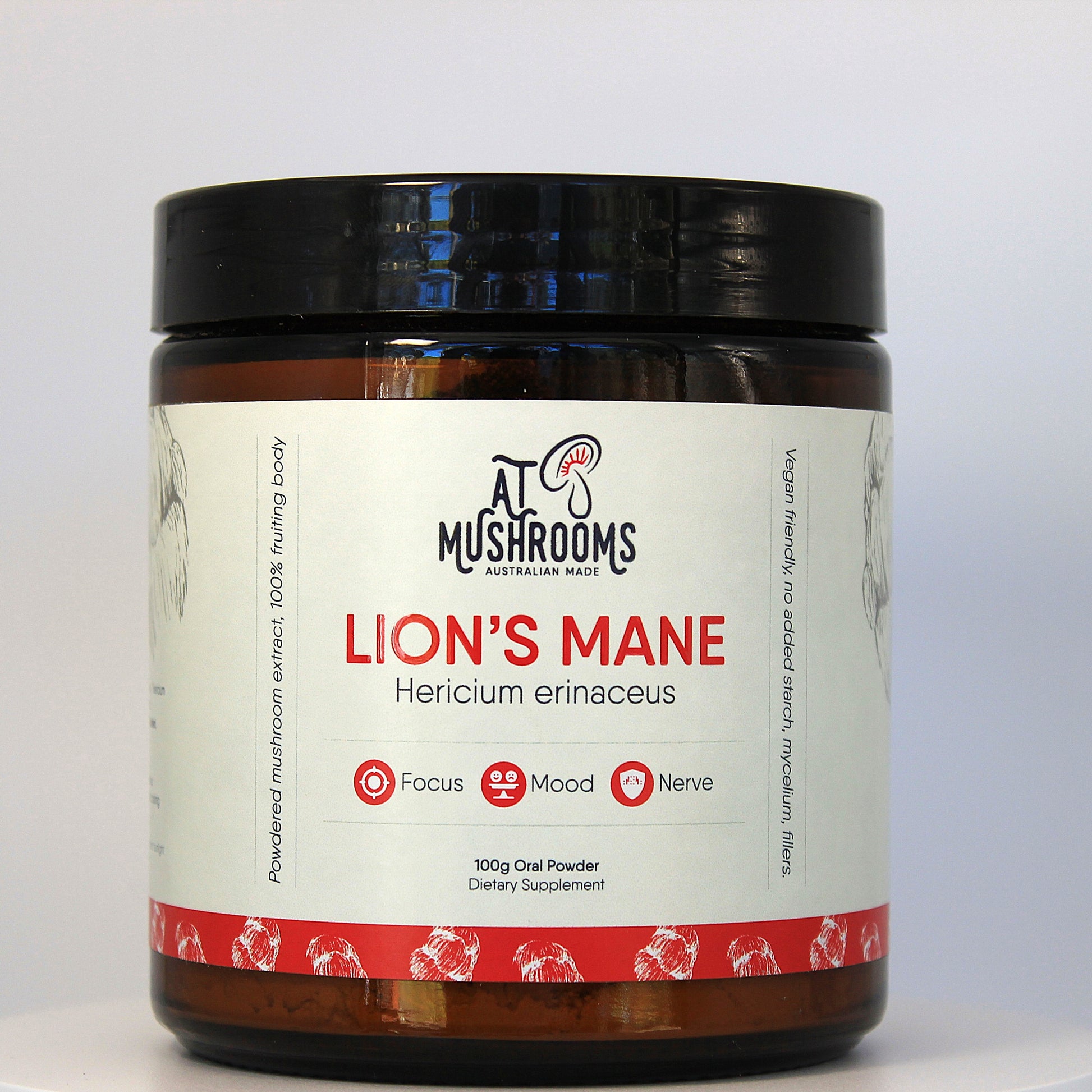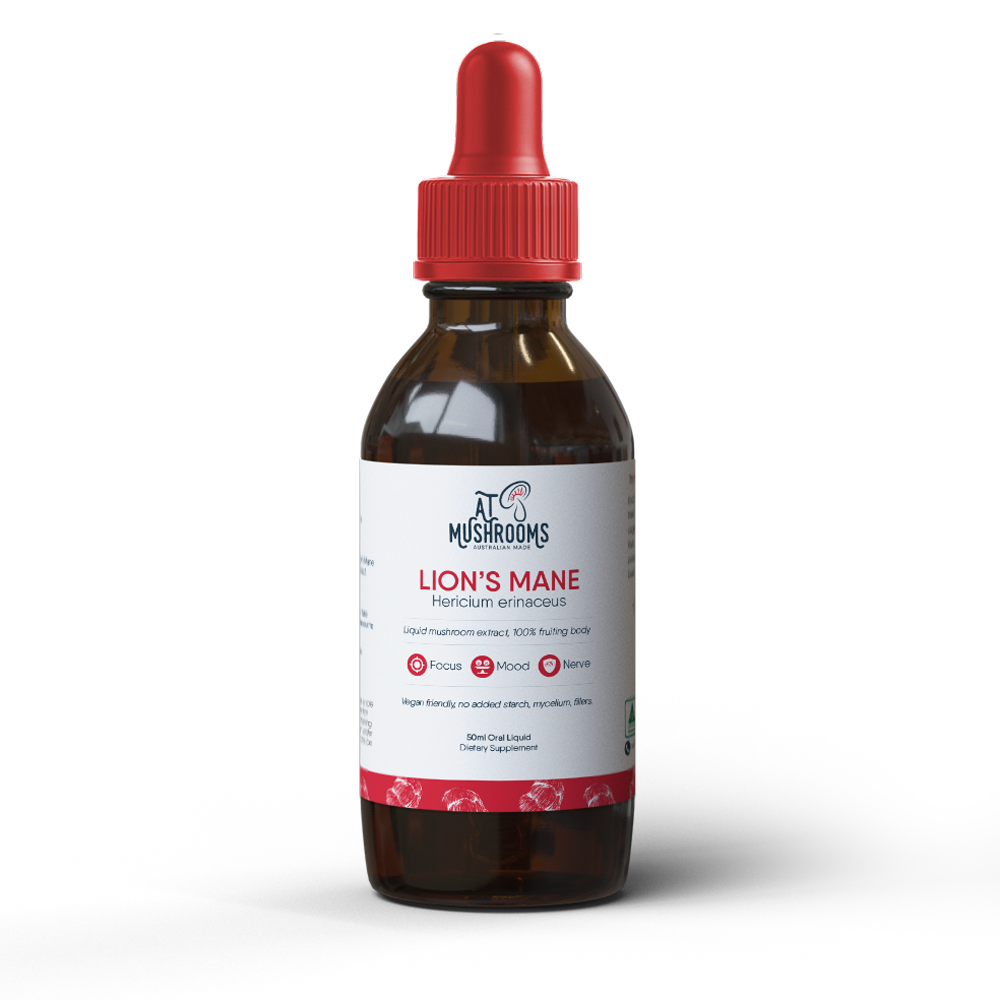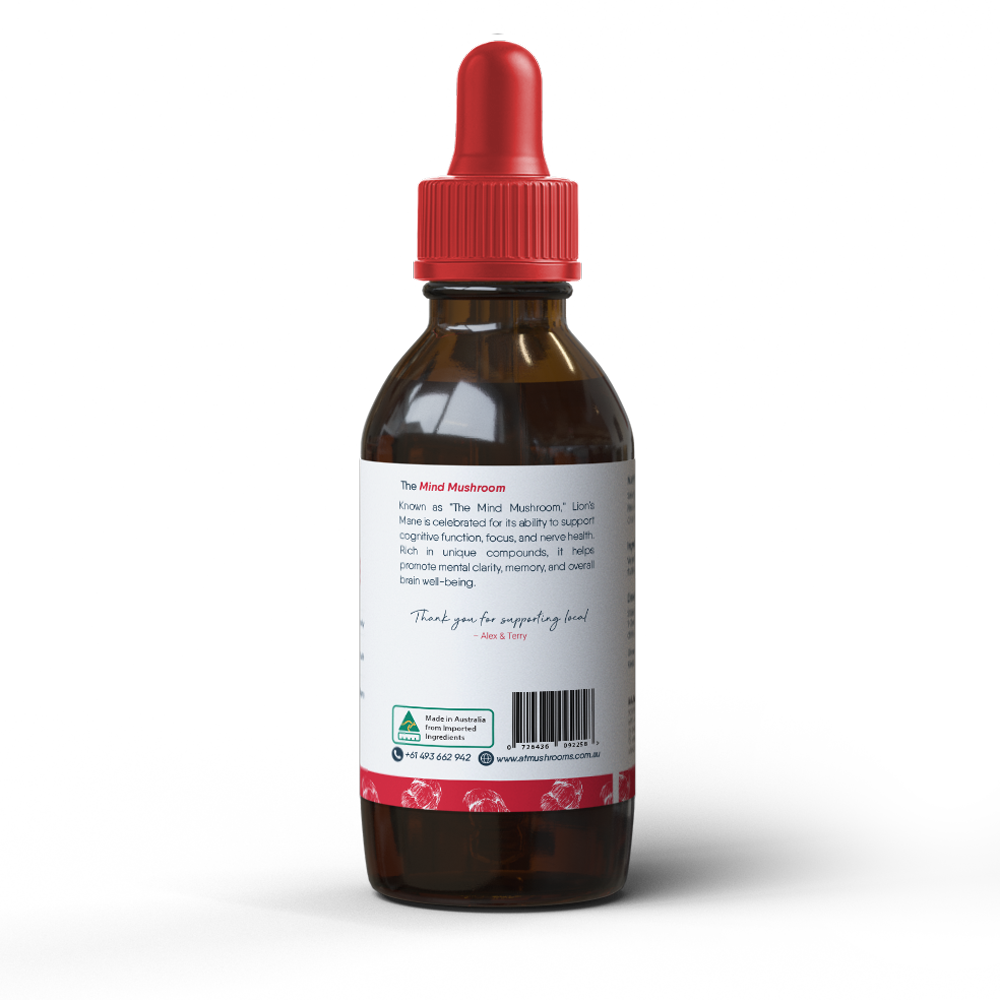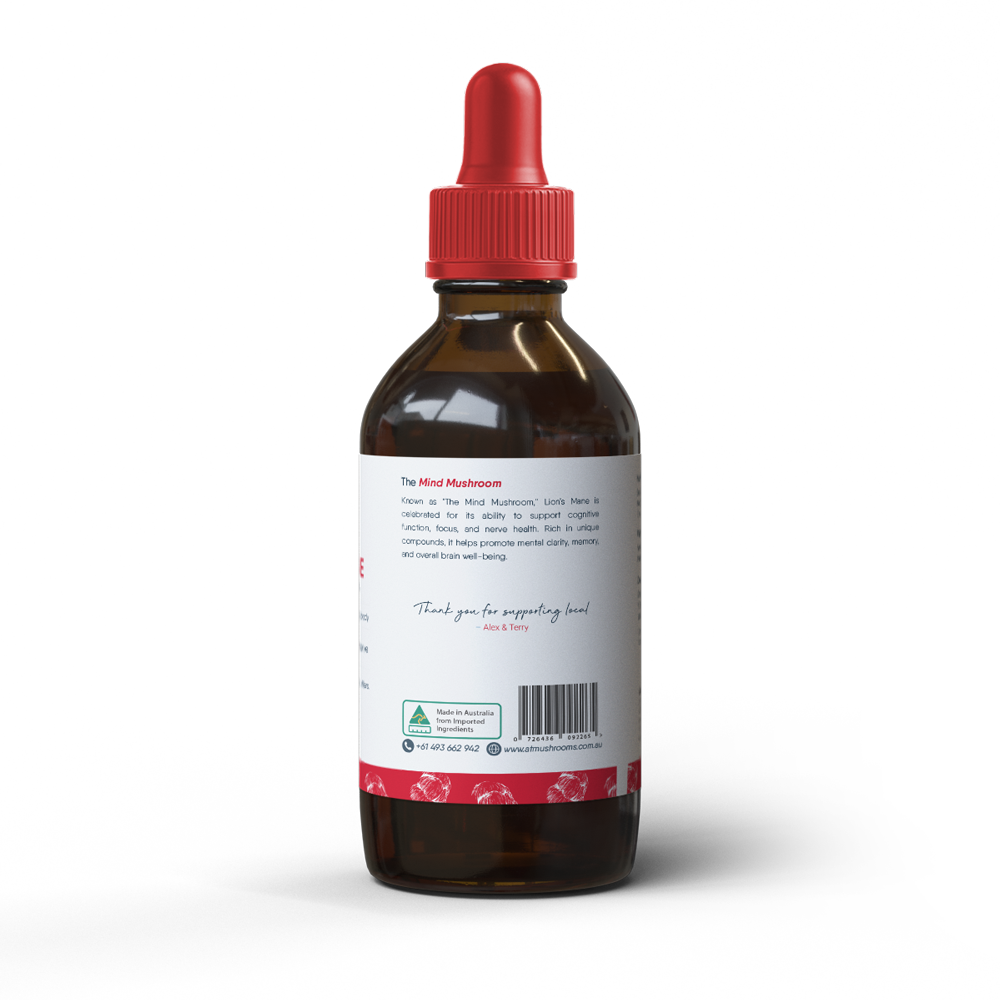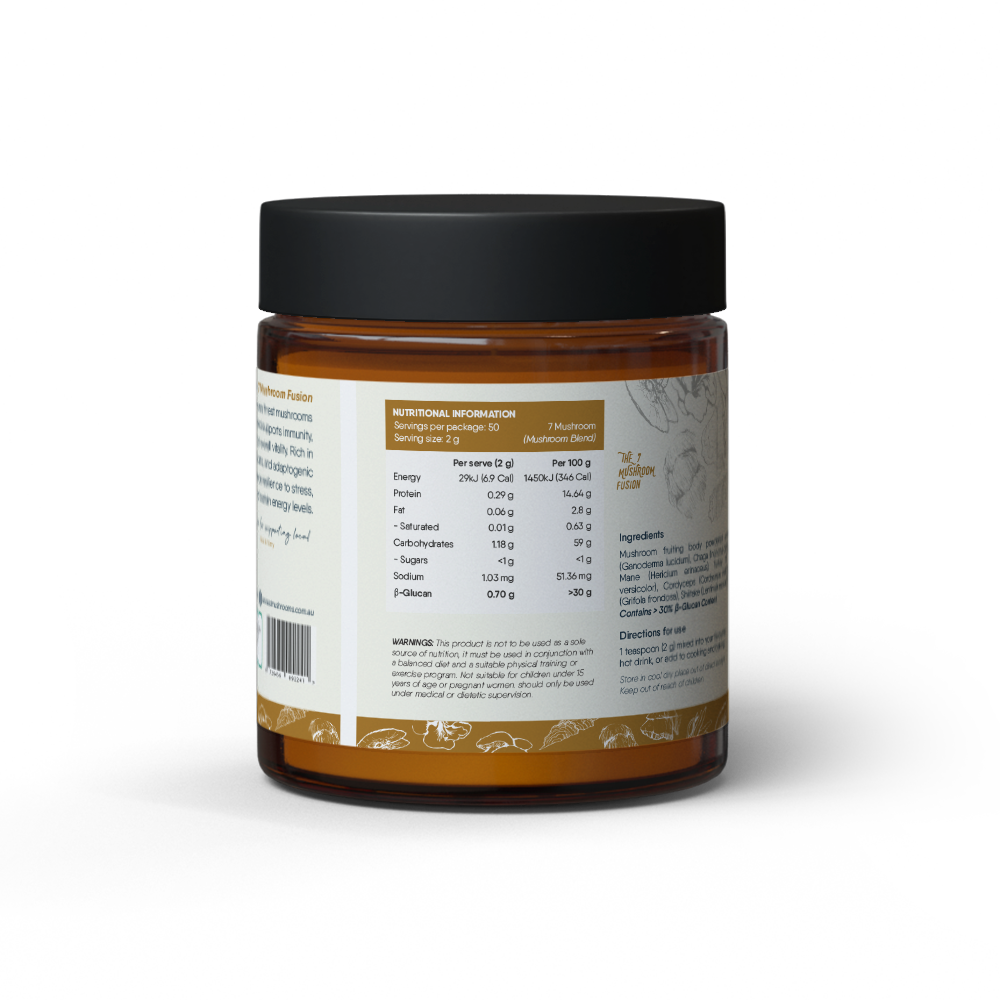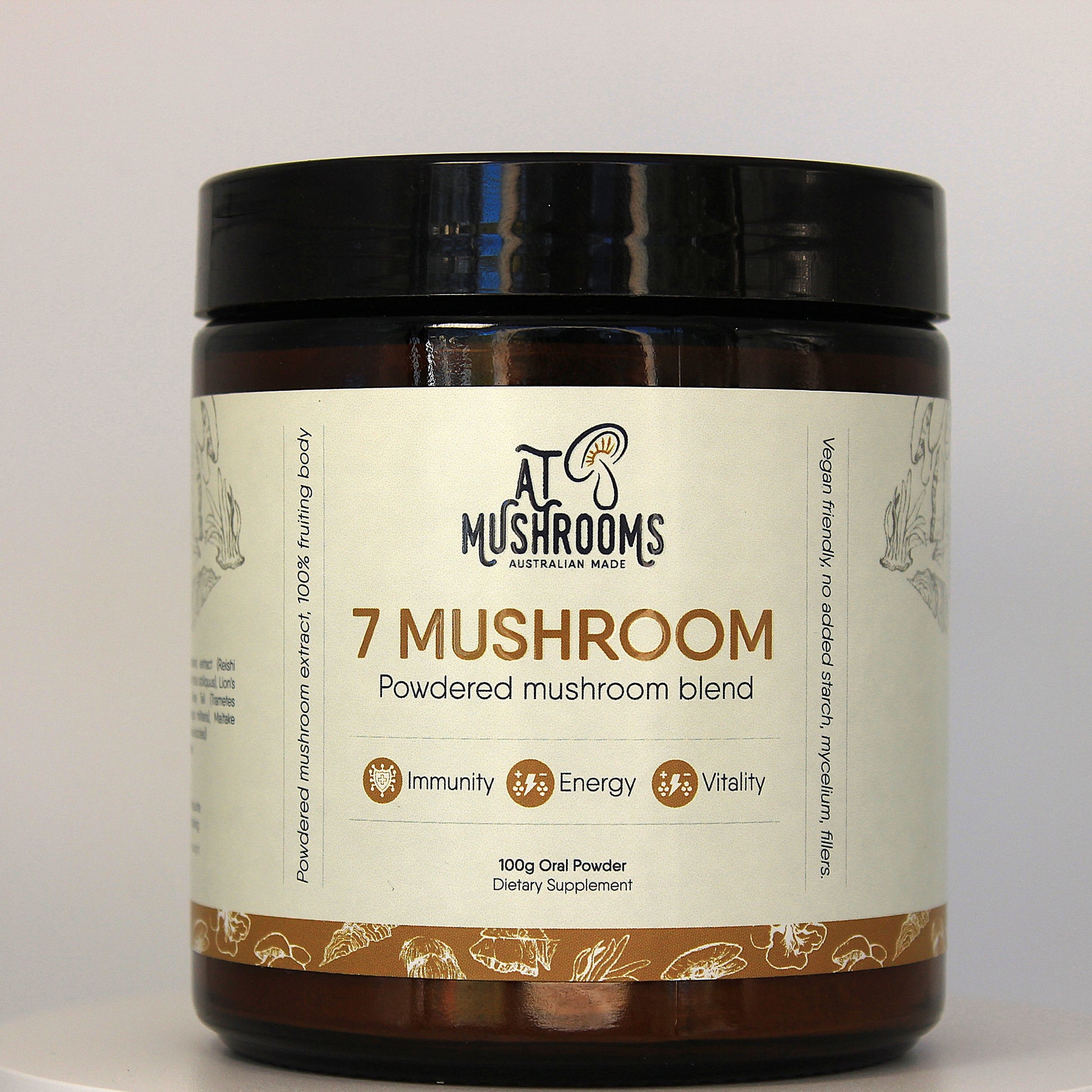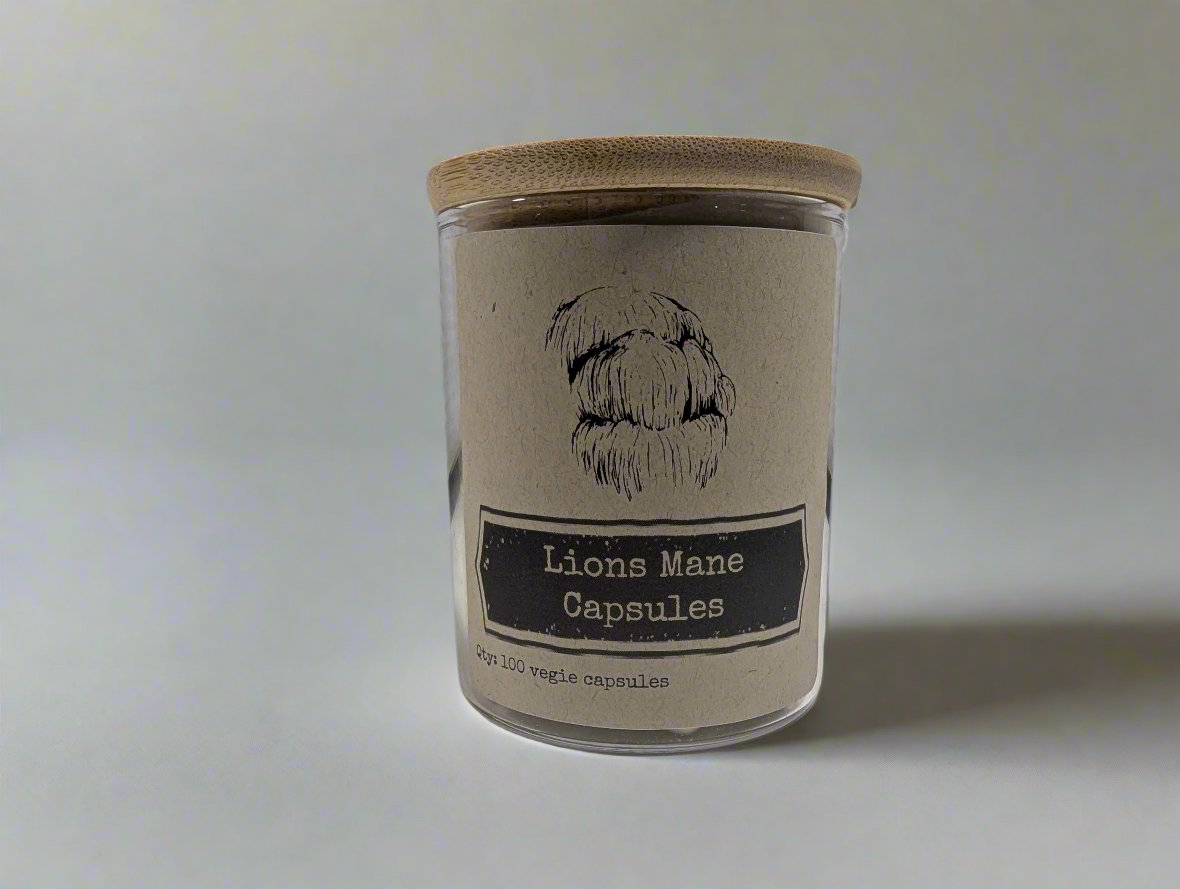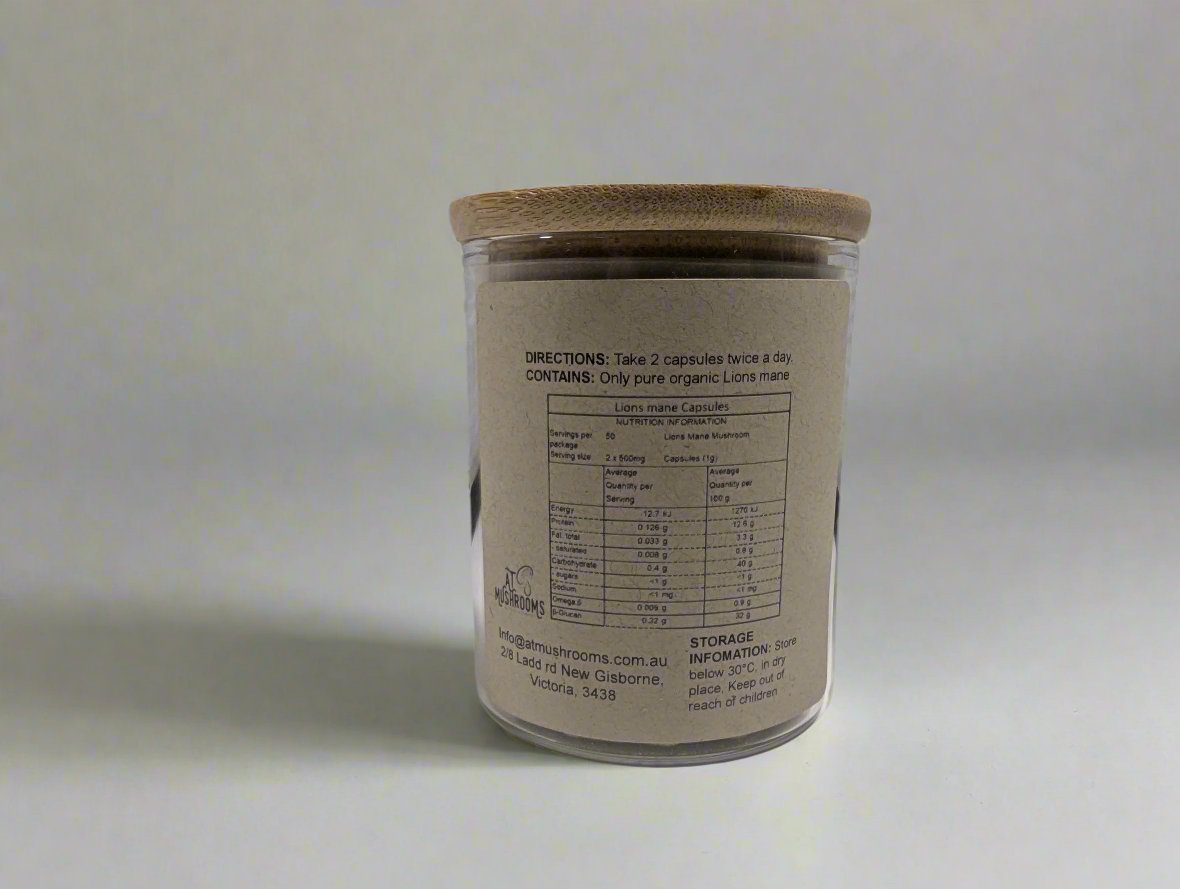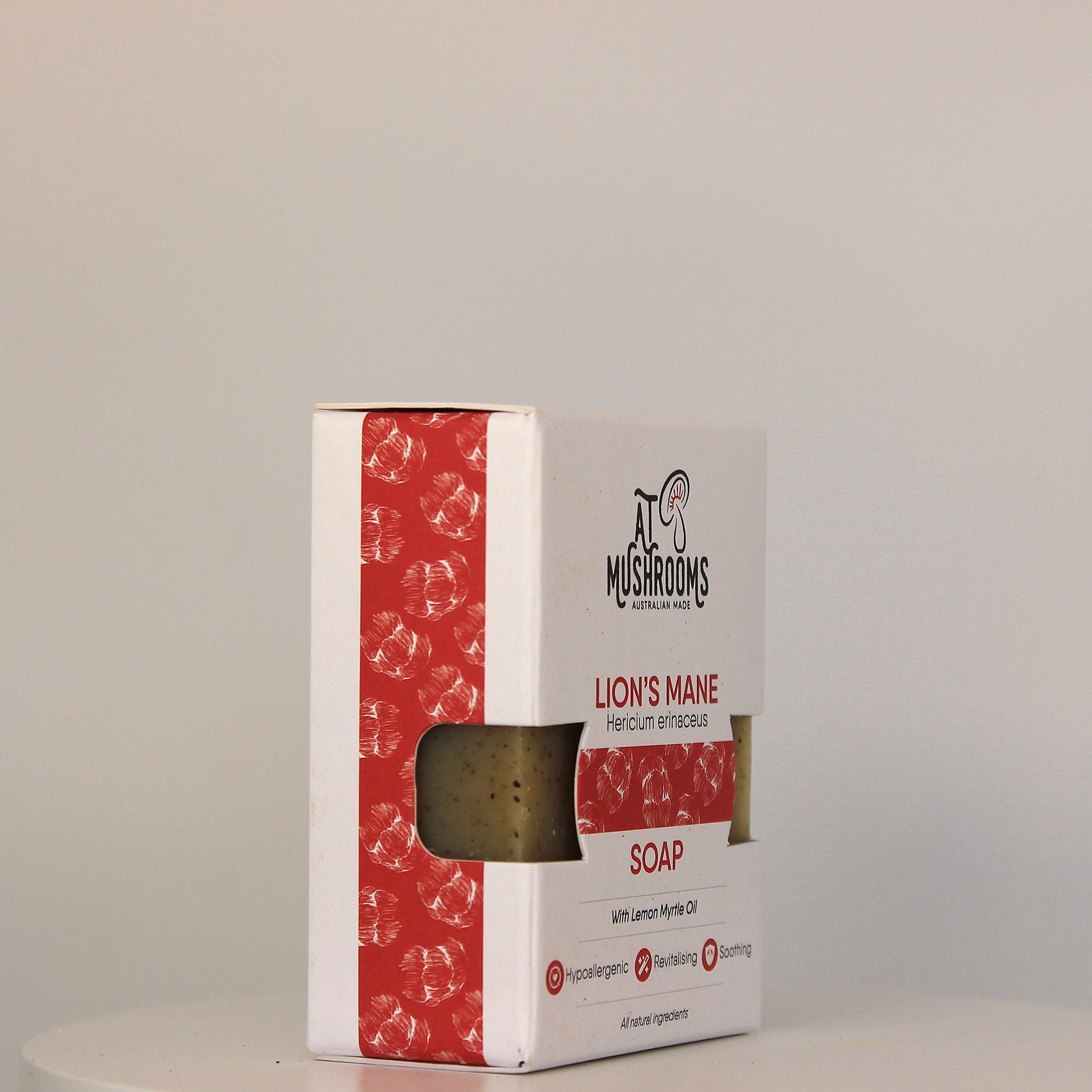Lion's Mane (Hericium erinaceus)
Lion's Mane (Hericium erinaceus) is one of the most researched medicinal mushrooms for cognitive health and neurological support. Known for its unique ability to stimulate nerve growth factor (NGF), Lion's Mane has become a popular natural nootropic for brain health. Explore our premium Lion's Mane products to experience these remarkable benefits.
Quick Navigation
Jump to section:
Lion's mane mushrooms are among the most surreal fungi you'll find in a forest. Like their namesake, they grow a large, white, shaggy mane that forms their fruiting body (the mushroom) and is found growing on beech and maple trees.
Considered a gourmet mushroom (with a flavor like lobster), they've also got an incredible selection of health benefits, including:
- Mood stabilization
- Blood sugar control
- Dementia prevention
- Heart protection
- Digestive discomfort
Mood stabilization
Lion's mane's antidepressant and anxiolytic effects are well-documented. In animal studies, the fungus had anti-inflammatory effects that simultaneously reduced anxiety and depression in mice18. In contrast, other studies saw a regenerative effect in brain cells, especially in the hippocampus, the region responsible for memories and emotional responses19.
These findings were replicated in people – a 2010 study gave lion's mane mushrooms to 30 women for 4 weeks and observed a significant reduction in anxiety and depression compared to placebo20. A review of the possible mechanisms confirmed its beneficial effects, noting multiple therapeutic pathways (including anti-inflammatory properties)21.
Ready to experience these cognitive benefits? Try our Lion's Mane liquid extract for maximum bioavailability and potency.
Blood sugar control
Diabetes is caused when the hormone insulin can no longer regulate blood sugar levels, either because of insufficient production (type I) or because the receptors fail to respond to the hormone (type II).
Lion's mane mushroom appears not only to significantly lower blood sugar levels (as seen in normal and diabetic mice22) but also to improve the consequences of diabetes, such as chronic nerve damage.
One analysis found that lion's mane reduces blood sugars by blocking the enzyme alpha-glucosidase, responsible for digesting carbohydrates in the small intestine23.
Meanwhile, a 6-week course of lion's mane mushroom extract alleviated pain and reduced blood sugar levels in mice, indicating a robust therapeutic potential24.
Dementia prevention
Perhaps most impressive is lion's mane's anti-dementia effects. It's believed that Alzheimer's disease occurs due to neuronal damage from amyloid-beta plaques that clog up your brain. Lion's mane may prevent this neuronal damage, thereby reducing the symptoms of dementia25.
Indeed, taking just 1 gram per day for 49 weeks significantly boosted cognitive test scores in people with mild Alzheimer's disease compared to placebo26. This may also explain why it's credited with reducing the feeling of brain fog in others.
For convenient daily use, our Lion's Mane powder can be easily added to smoothies, coffee, or meals to support your neurological health.
Heart protection
Several studies have noted possible heart-protective effects. These mainly work on the key risk factors, such as obesity, high triglycerides, and oxidized cholesterol. First, a 2010 study found that despite feeding rats a high-fat diet, lion's mane reduced triglyceride levels (27% lower) and weight gain (42% less) after just 28 days27.
Moreover, in vitro studies observed that lion's mane extract was the "most potent" preventer of cholesterol oxidation in the bloodstream28. Oxidized cholesterol carries a high risk of hardening the arteries, leading to stroke and heart attack.
Digestive discomfort
Alongside the other benefits of this mushroom, lion's mane is also beneficial for people with inflammatory bowel disease (IBD): ulcerative colitis and Crohn's disease. One study found taking a supplement (with 14% lion's mane) reduces symptoms and boosts quality of life after 3 weeks29. While a separate study hypothesized that H. erinaceus regulates the gut microbiota, helping "good" bacteria to relieve symptoms30.
Related Mushrooms for Brain & Overall Health
Lion's Mane works synergistically with other medicinal mushrooms to support comprehensive wellness:
- Reishi - Reduces stress and improves sleep quality, creating optimal conditions for cognitive function
- Cordyceps - Enhances energy and mental clarity to complement Lion's Mane's cognitive benefits
- Turkey Tail - Supports immune system health for overall wellness
- 7 Mushroom Blend - Experience the combined power of Lion's Mane with six other premium mushrooms
Learn More About Medicinal Mushrooms
Expand your knowledge with our educational resources:
Deep dive down the mycelium rabbit hole and learn about the benefits of all the mushrooms by reading scientific studies from around the world.

